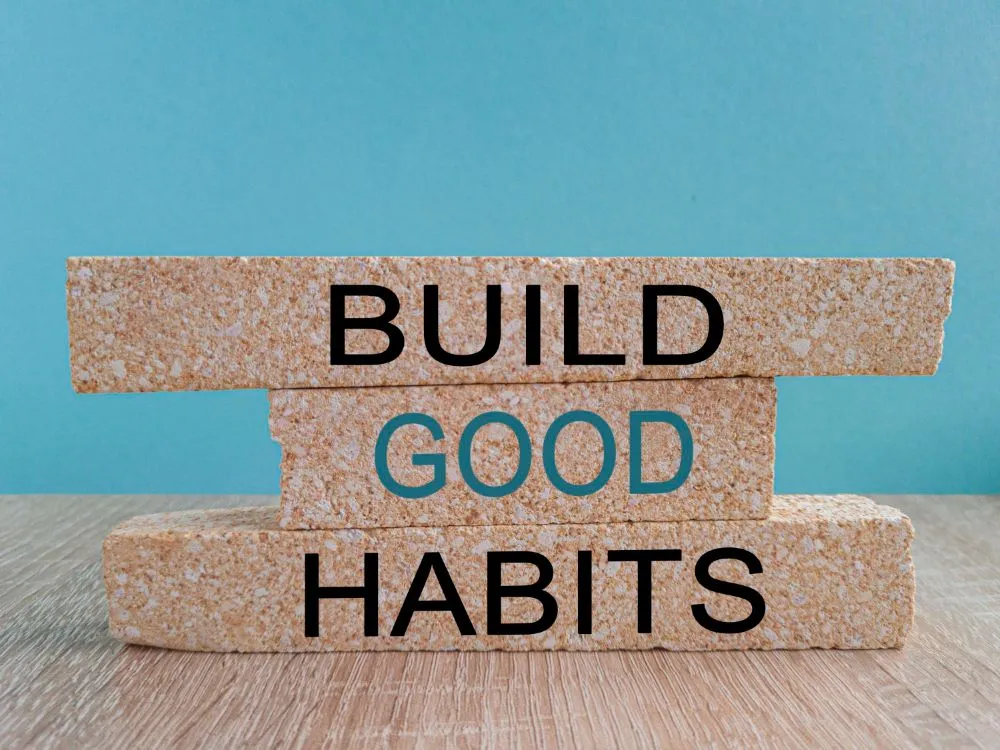Consumerism is a term often used to describe a lifestyle focused on impulsive consumption of goods or services. The tendency to buy things without considering the necessity of those items is a hallmark of this lifestyle.
To gain a better understanding of consumerism, let's delve into a comprehensive discussion of what consumerism is, its causes, and its impacts.
1. What is Consumerism?
Consumerism has become a phenomenon ingrained in the modern era, defined as the culture of excessive consumption. Sociologist Jean Baudrillard suggests that consumerism creates a desire for continuous buying and consumption, regardless of whether the needs of the items are prioritized. Often, the consumerist lifestyle is associated with extravagance, hedonism, and glamorous living. Consumerism is identified with 'consumption' no longer driven by necessity but as symbols of social status and self-identity.
Furthermore, Baudrillard explains that in consumerist societies, the meaning and value of an item do not lie in its function or utility but in the image and prestige attached to it. Luxury and branded goods become the primary commodities to demonstrate one's social status and prestige.
Meanwhile, according to the Great Indonesian Dictionary (KBBI), consumerism is a lifestyle that regards happiness as derived from the possession of luxury goods.
Also Read: Hedonism Lifestyle: Definition, Causes, and How to Overcome It
2. Characteristics of Consumerism
In essence, the consumerist lifestyle is one that we often encounter, consciously or unconsciously. Here are some characteristics of consumerism:
2.1 Fear of Missing Out (FOMO) or Simply Following Trends
One of the main characteristics of consumerism is the fear of missing out on trends or the Fear of Missing Out (FOMO). Individuals with a consumerist lifestyle often buy goods or follow the latest trends merely because they fear being considered outdated. They do not consider whether the items are genuinely needed or not.
2.2 Desire to Be the Center of Attention
Consumerism is a lifestyle closely related to the desire to be the center of attention. People who adhere to this lifestyle often use branded and luxurious items to show off their social status and attract the attention of others.
2.3 Pride in Possessions and Self-Appearance
The third characteristic of consumerist lifestyle is pride. Individuals with a consumerist lifestyle usually take pride in their possessions and appearance. For them, owning branded and luxurious items symbolizes success and happiness.
3. Causes of Consumerist Behavior
3.1 Social Pressure to Purchase Goods
Social pressure is a major factor driving consumerist behavior. This occurs when individuals feel compelled to buy certain items due to pressure from their surroundings, such as friends, family, or social media. This pressure can arise from various aspects, such as the need for social status, recognition, or conformity with prevailing norms within a group or society.
3.2 Successful Product Marketing Strategies
Clever and successful marketing strategies often play a significant role in triggering consumerist behavior. Companies employ various marketing techniques designed to capture consumers' attention, making them feel that buying a product is a necessity. By leveraging consumer psychology, product promotion, and brand image formation, these marketing strategies succeed in turning desires into needs, leading consumers to make purchases.
3.3 Trend Changes
Trend changes also contribute to increasing consumerist behavior. When a particular product or lifestyle becomes a trend or is seen as a status symbol, consumers tend to follow suit by buying related products. Trend changes can also create a drive to purchase new items or replace existing ones to remain "up to date" or appear modern in their social environment. Thus, trend changes can be a primary driver in increasing consumption levels in society.
4. Impacts of Consumerism

Image Source: Freepik
4.1 Negative Impacts of Consumerism
Excessive consumerism can have significant negative impacts on both individuals and society as a whole. Here are some negative impacts of consumerism:
- Fueling Extravagant Lifestyles
Uncontrolled consumerism can lead individuals to live extravagant lifestyles. They tend to spend money impulsively on buying items they don't actually need, only to satisfy momentary desires or to chase the latest trends. As a result, individuals may get trapped in a cycle of prolonged debt, especially when they use credit cards or loans to fund their consumptive lifestyles.
- Social Disparities
Consumerist behavior can also reinforce social disparities between financially capable individuals and those less financially capable. People with higher purchasing power tend to have greater access to luxury goods and expensive lifestyles, while individuals with lower incomes may feel left behind or unable to afford to keep up with consumption trends. This can create feelings of inferiority and inequality within society.
- Reducing Opportunities to Save
Excessive spending on consumptive needs can reduce individuals' ability to save and invest for their future. By spending most of their income on buying consumptive goods, individuals may not have enough funds to save for education, retirement, or other urgent needs. Consequently, they may become vulnerable to financial difficulties in the future.
- Lack of Future Planning
Uncontrolled consumerist behavior often makes individuals less concerned about their future. People with this lifestyle tend to focus on fulfilling short-term desires and needs without considering the long-term consequences of their consumptive decisions. Lack of financial planning and indifference towards future savings can lead to financial problems later on, such as difficulty meeting basic needs or achieving long-term financial goals.
4.2 Positive Impacts of Consumerism
Although consumerism is often criticized for its negative impacts, there are also positive aspects to consider.
- Driving Economic Growth
Healthy consumerism can be a driving force for economic growth. High demand for goods and services stimulates further production, which in turn creates jobs and increases income. Through this consumption cycle, money circulates within the economy, strengthening business activities and supporting economic growth.
- Contributing to Job Creation and Entrepreneurship Opportunities
With increasing demand for goods and services, companies will expand their operations to meet market needs. This creates new opportunities for job creation and provides space for entrepreneurs to enter the market with new innovations. Healthy consumerism can generate a dynamic business environment and provide opportunities for individuals to succeed in various fields.
- Decreasing Unemployment Rates
High demand for goods and services contributes to a decrease in unemployment rates. With significant consumer demand, companies will need more labor to produce, distribute, and sell these goods. This can help reduce unemployment rates in society, providing job opportunities for individuals seeking employment.
- Triggering Business Owners to Continuously Innovate in Developing Products or Services
Intense competition in the consumer market prompts business owners to continuously innovate in developing their products or services. To win the competition and meet the evolving needs of consumers, companies must continually adapt and produce better, more efficient, or more innovative products. Thus, consumerism can be a catalyst for progress and innovation in various economic sectors.
5. Overcoming Consumerism
Excessive consumerism can have negative effects on individual finances and well-being. To control consumerist behavior, here are some steps that can be taken:
5.1 Managing Monthly Income and Expenditures Wisely
The first step in overcoming consumerism is to manage monthly income and expenditures wisely. Careful financial planning will help individuals understand where their money is actually going and limit unnecessary spending. By paying attention to monthly budgets, individuals can identify areas where they can save and allocate funds for more important needs.
5.2 Starting a Saving Habit
The next step in overcoming consumerism is to start saving. Saving is key to creating long-term financial stability and protecting oneself from the negative impacts of consumerism. By starting a regular saving habit, individuals can build financial reserves that can be used to deal with emergencies or achieve long-term financial goals, such as buying a house or children's education.
Also Read: 4-3-2-1 Salary Regulating Formula For A Healthier Financial Cycle
5.3 Making a Priority Scale
It is important for individuals to understand the difference between wants and needs. Making a priority scale in spending will help allocate funds more wisely. Focus on essential needs first, such as basic necessities and bill payments, before allocating funds for less urgent wants.
5.4 Reducing the Desire to Simply Follow Trends
The next step in overcoming consumerism is to reduce the desire to follow trends. Often, consumerism is triggered by the urge to follow trends or certain social images. It is important to reduce the desire to always follow trends and recognize that true value is not found in material possessions or popularity on social media. Focus on more important values, such as healthy social relationships, self-development, and achieving personal goals.
5.5 Making Long-Term Needs Plans
Planning long-term needs will help individuals stick to their financial goals and avoid consumerist tendencies. By creating a long-term financial plan, individuals can set specific goals, such as buying a house or retirement preparation, and allocate funds consistently to achieve them. This will help maintain focus on long-term needs rather than impulsive spending that only provides temporary satisfaction.
BFI friends, the following is a brief explanation of the consumerist lifestyle. Hopefully this can be a valuable lesson so that you can manage your personal finances better.
BFI Finance is a financing company that provides multi-purpose loans with collateral for motorbike BPKB, car BPKB, and house or shophouse certificates for your needs. Apply for financing at BFI Finance, with a fast and easy process. BFI Finance provides conventional and non-conventional (syariah) financing with guarantees that can be your financial solution.







